New EU-Honduras partnership signals brighter future for Honduras’ forests and beleaguered timber trade
Discussion details
This story is available in Spanish.
The future of one of the world’s last surviving tropical pine forests is looking more secure after a landmark agreement was signed between the European Union (EU) and the government of Honduras.
The EU-Honduras new Forest Partnership sets out four key areas for action: to reduce deforestation, tackle the illegal logging industry, boost job opportunities in the forest sector, and increase the area of protected, restored and sustainable managed forests.
“There is no doubt in my mind this marks the start of solid, sustainable forestry development for Honduras,” says José Guillermo Flores, a Consultant with the European Commission’s Forests for the Future Facility (F4F) in Honduras. “I am optimistic because the government is serious. The Forest Partnership will help establish trust between the private sector and the government, knowing there was sometimes a lack of dialogue in the past.”
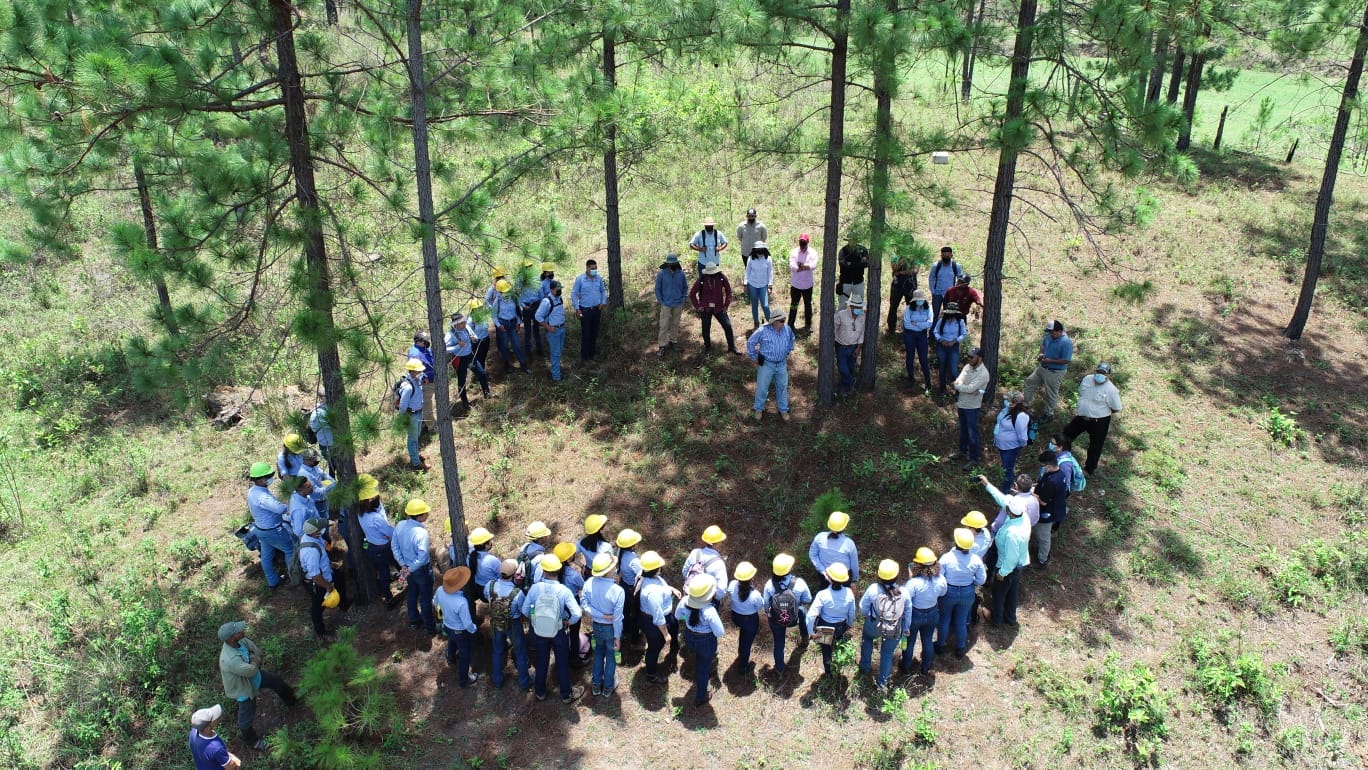
The Forest Partnership builds on more than 15 years of work by the EU and the Honduran government to tackle deforestation in the country - including the breakthrough EU-Honduras voluntary partnership agreement (VPA) on forest law enforcement, governance and trade (FLEGT), which was signed in 2022 after a decade of negotiations and was the first ever such agreement signed by the EU with a Latin American country. As EU Commissioner for International Partnerships Jutta Urpilainen said at the time, “Stronger forest governance and consequently, increased legal timber exports, will enable Honduras to boost its economy, preserve nature, and further protect and support local communities.”
Getting forest communities and indigenous people on board is essential for the success of the Partnership, as the question of who owns the forests is also a significant barrier to private sector investment in sustainable forest management. “One of the biggest challenges is the uncertainty around recognition of ownership,” explains Flores. “We have unfortunately inherited a very disorganised system from colonial times and the land registries aren’t clear about who owns what. There may be several owners laying claim to the same piece of land.”
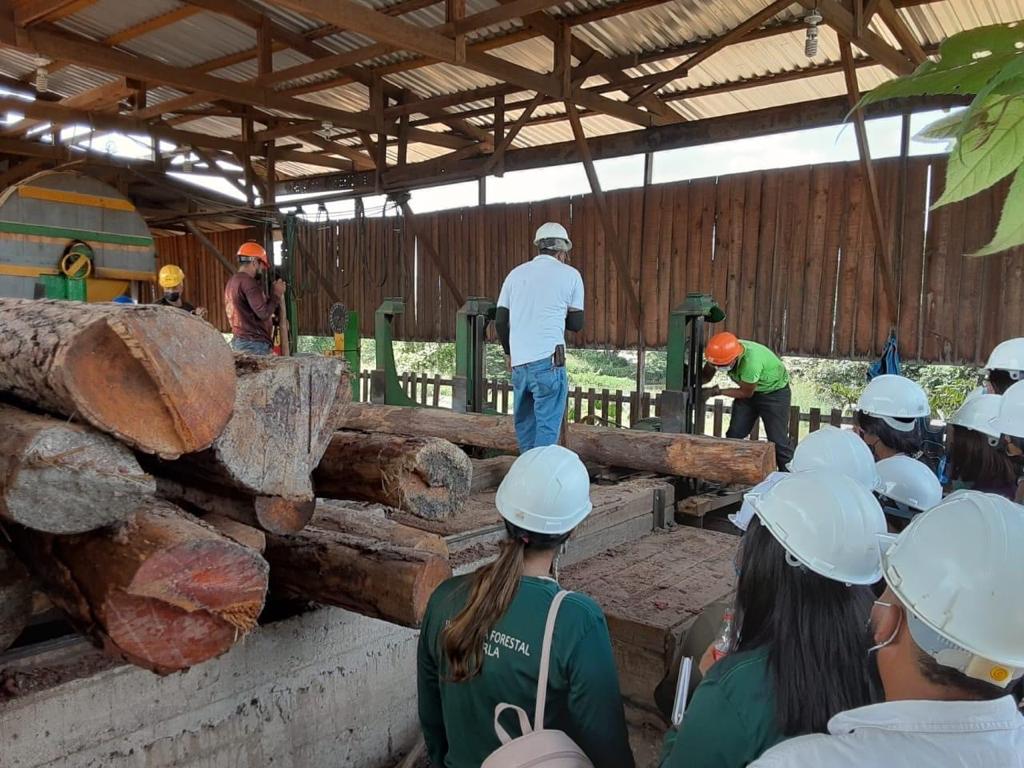
Many indigenous peoples hold rights to the land, especially in Honduras’ tropical hardwood forests. The 350,000 ha Río Plátano Biosphere Reserve, for example, is populated by various indigenous groups whose traditions and rights to live there are protected by law.
But when it comes to tropical pine forests, most indigenous groups are not involved in sustainable forest production. “The partnership will ensure that these communities are involved in the future,” Flores adds. “That could include training to set up small-scale forestry operations and facilitating access to markets – which is fundamental because unless they are major stakeholders in the supply chain, they won’t get all the benefits they should.”
The Partnership is urgently needed: official data suggest that more than 40 % of all timber produced in Honduras is the result of illegal forestry activity. That damages the environment, harms indigenous communities and discourages investment.
“Illegal commercial exploitation of the forests is a major problem,” explains Flores. “It’s the source of unfair trade and the private sector won’t invest while these unfair practices continue. As long as it persists, it’s a major obstacle to those who have good intentions to trade sustainably. I believe the Forest Partnership, which focused on good forest governanc, mong other themes, will make a major difference - there is no doubt in my mind this marks the start of good, sustainable forestry development for Honduras.”
One company which has invested heavily in sustainable forestry management is Asseradero Sansone, the largest private forest owner in Honduras. For more than 30 years, the company has prided itself on protecting both biodiversity and supporting the economic development of the forest communities.
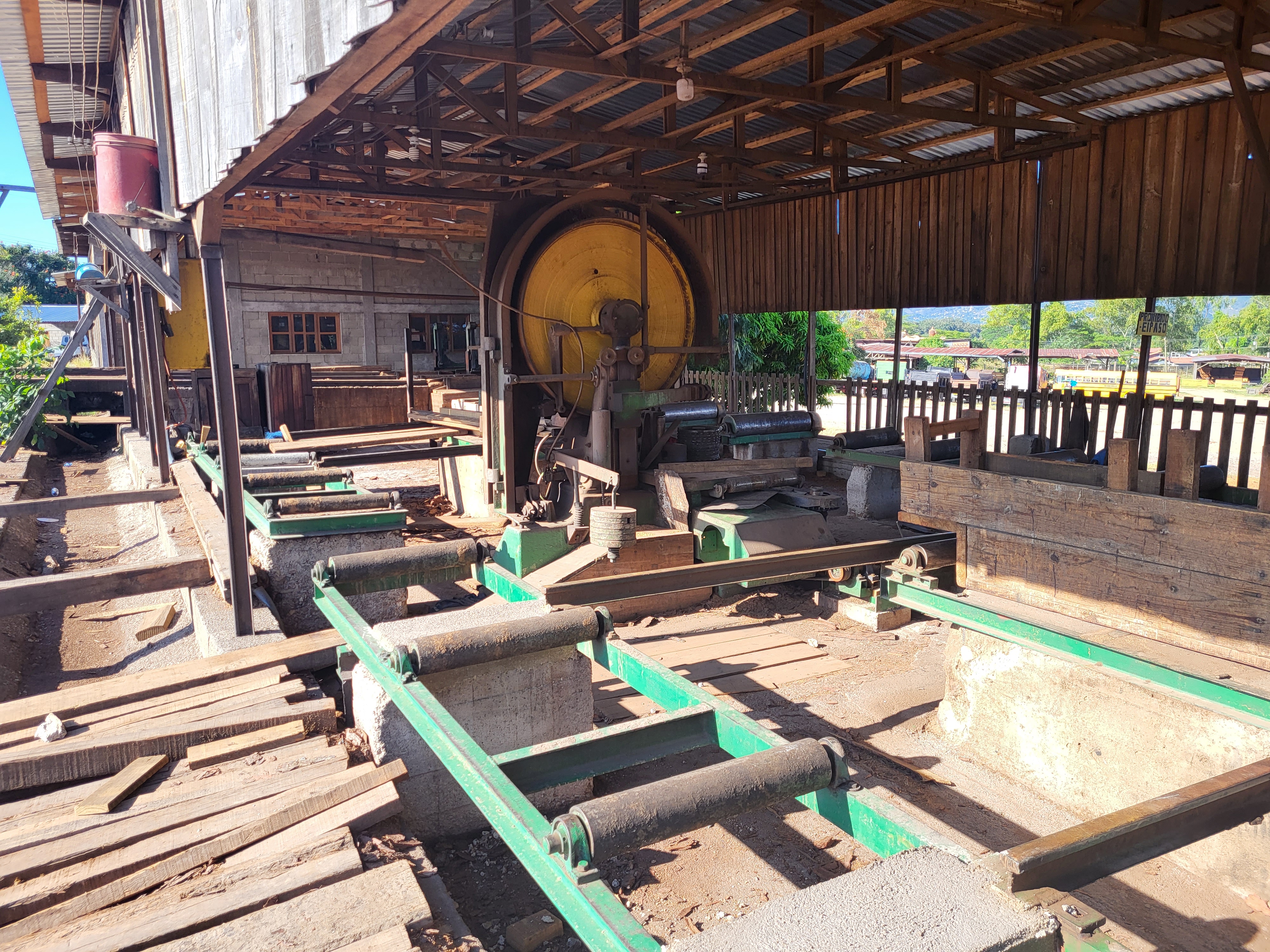
Asseradero Sansone’s efforts were recently rewarded when it became the largest Honduran company to obtain Forest Stewardship Council (FSC) certification - for more than 9,000 hectares of its operations, with 50,000 ha more planned in the next few years.
“We have a long-term vision, so it’s essential to practice forestry in such a way that the forested areas are maintained in good condition, with natural reforestation,” says Lucia Memoli, Assistant Manager at Aserradero Sansone. Together with her sister Giovanna, second-generation Italian Lucia now runs the company started by her father in the 1950s.
“FSC certification is fundamental to our efforts. It helps us improve our sustainability practices and knowledge. We hope it will soon open the door to markets where certified wood sells for a higher price,” she adds.
It is hoped the Forest Partnership - which was signed at the recent COP28 climate conference in Dubai - will act as a spur for other private sector players to also invest in sustainable forest management in Honduras. “We are very happy about this agreement,” adds Lucia. “It’s essential that both the Honduran government and the private forestry sector adhere to the principles of transparent traceability, sustainable natural resources managment, and fight against deforestation and land use change.”
Aserradero Sansone’s approach to sustainable forest management includes pruning and thinning to improve quality; using oxen for the extraction of logs to reduce the impact on soil; fire prevention campaigns with controlled burning; guarding protected areas from damage; and training local adults and students in the importance of respecting the forest, nature and national forest laws.
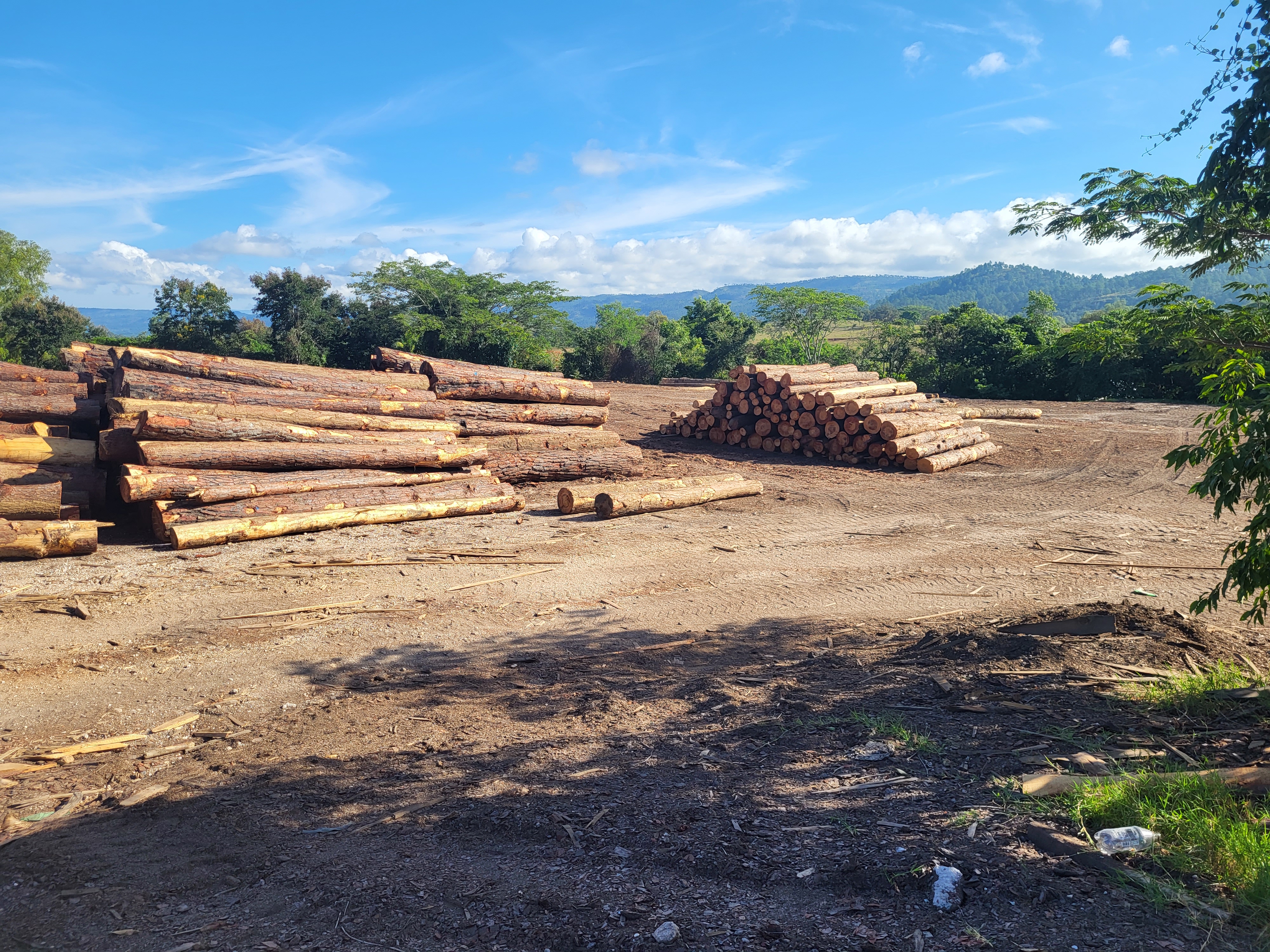
And as Lucia points out, the company also supports local economic development by allowing families to live on its land, where they practice cattle grazing and agriculture and get paid for looking after the trees. “It will also make a big difference to our work because we will have a well-defined legal framework, as well as access to knowledge, technology and easier loans.”
The EU-Honduras partnership is the 6th such agreement in the world, following those signed at COP27 with Guyana, Mongolia, the Republic of the Congo, Uganda and Zambia last year. They aim to enhance the socio-economic role of forests and their contributions to climate and biodiversity protection.
Honduras’ once-thriving private forestry sector has been in decline for some years, with production peaking more than two decades ago. That, in turn, leaves a gap to be exploited by illegal operators. “Governance is weak,” explains Petri Lehtonen, an expert in private sector investment at F4F. “Forestry companies must have a sustainable management plan, but it’s a very slow and expensive procedure. That’s a disincentive for people who want to sustainably manage the forest resources. The illegal operators have an advantage over those who do want to do the right thing.”
Honduras’ broad-leaved tropical hardwood trees - which make up more than half of the country’s 5.3 million ha of forest cover - have suffered considerably as land is cleared for farming and local communities use wood as fuel. As a result, the Forest Partnership makes it clear the priority for the remaining hardwood forests must be halting, then reversing, deforestation and biodiversity loss. The agreement also recognizes that tropical pine forests can provide important job and investment opportunities, but only if managed sustainably.
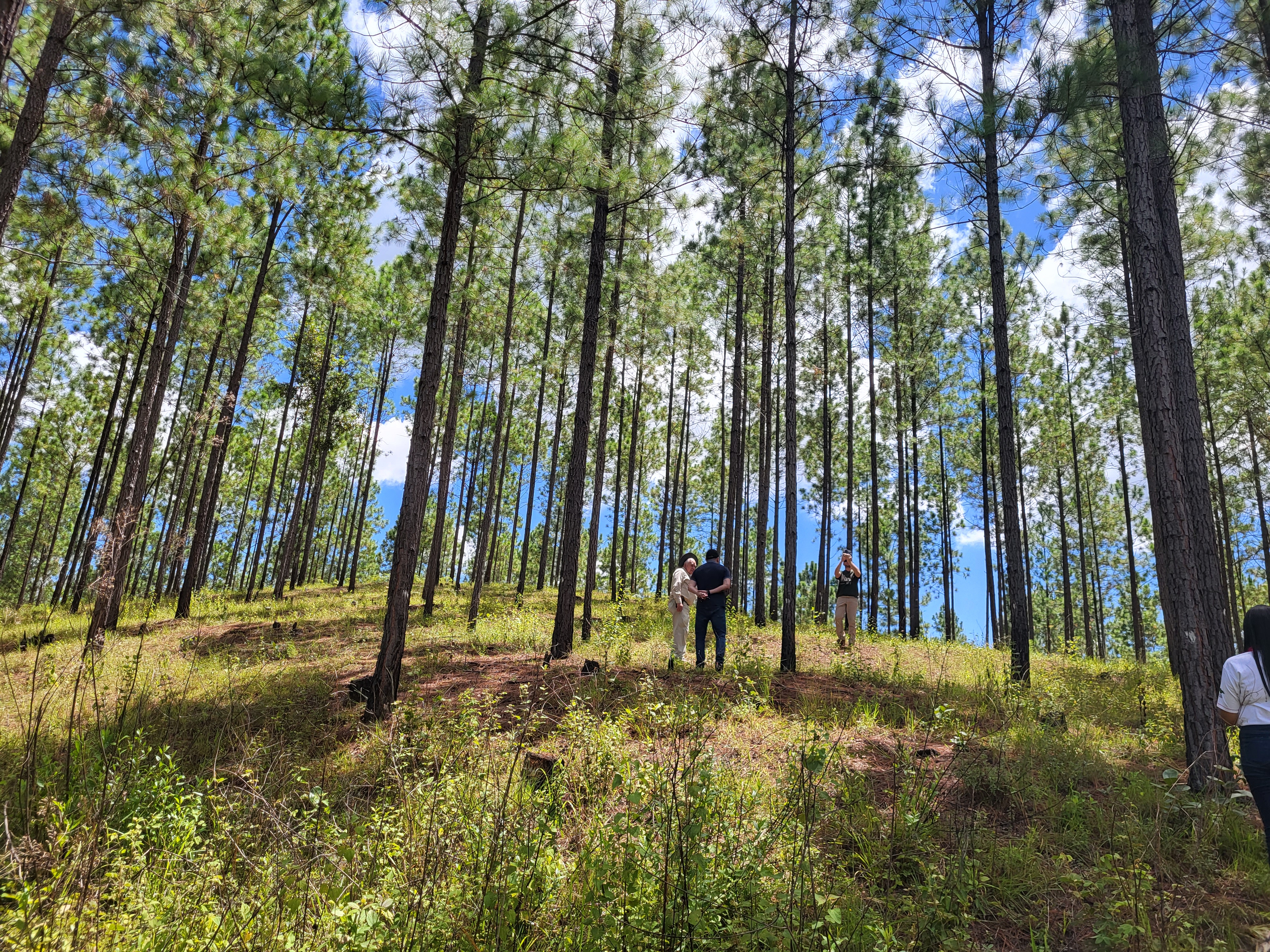
“This doesn’t mean we should expand the volume of timber being harvested, but that it should be sustainably managed,” explains Lehtonen. “We need to focus on getting more from less. Long-lasting forest products with a high value. Unfortunately, at the moment, most of the wood is burned as firewood. There is, however, a big demand for high-value sustainable wood products. That benefits everybody. We need to think about how all stakeholders, including local communities, get a benefit from the forests.”
“It’s simply not an option to close down the industry - a lot of people depend on it and there would be a lot of unemployment. But it must be managed sustainably - don’t take too many trees and allow them time to regenerate naturally.”
Experience shows most pine forests in Honduras will grow back by themselves if they are protected from fire and well managed - but many have been destroyed or degraded by pests, fires, and unsustainable and illegal logging.
While there is still a long way to go, Aserradero Sansone is already showing it is possible to be both sustainable and commercially successful. “We remain cautiously optimistic,” concludes Lucia. “The Honduran forestry sector requires a lot of passion, and its prosperity depends on the government’s ability and willingness to control it. Forestry companies must be formalized, they must respect legislation related to working conditions and paying taxes, and they must be completely transparent.”
Watch Videos :
- Honduras : Beneficios Sociales y Ambientales
- Honduras : Sansone con la Ley en el manejo de sus recursos naturales
Log in with your EU Login account to post or comment on the platform.